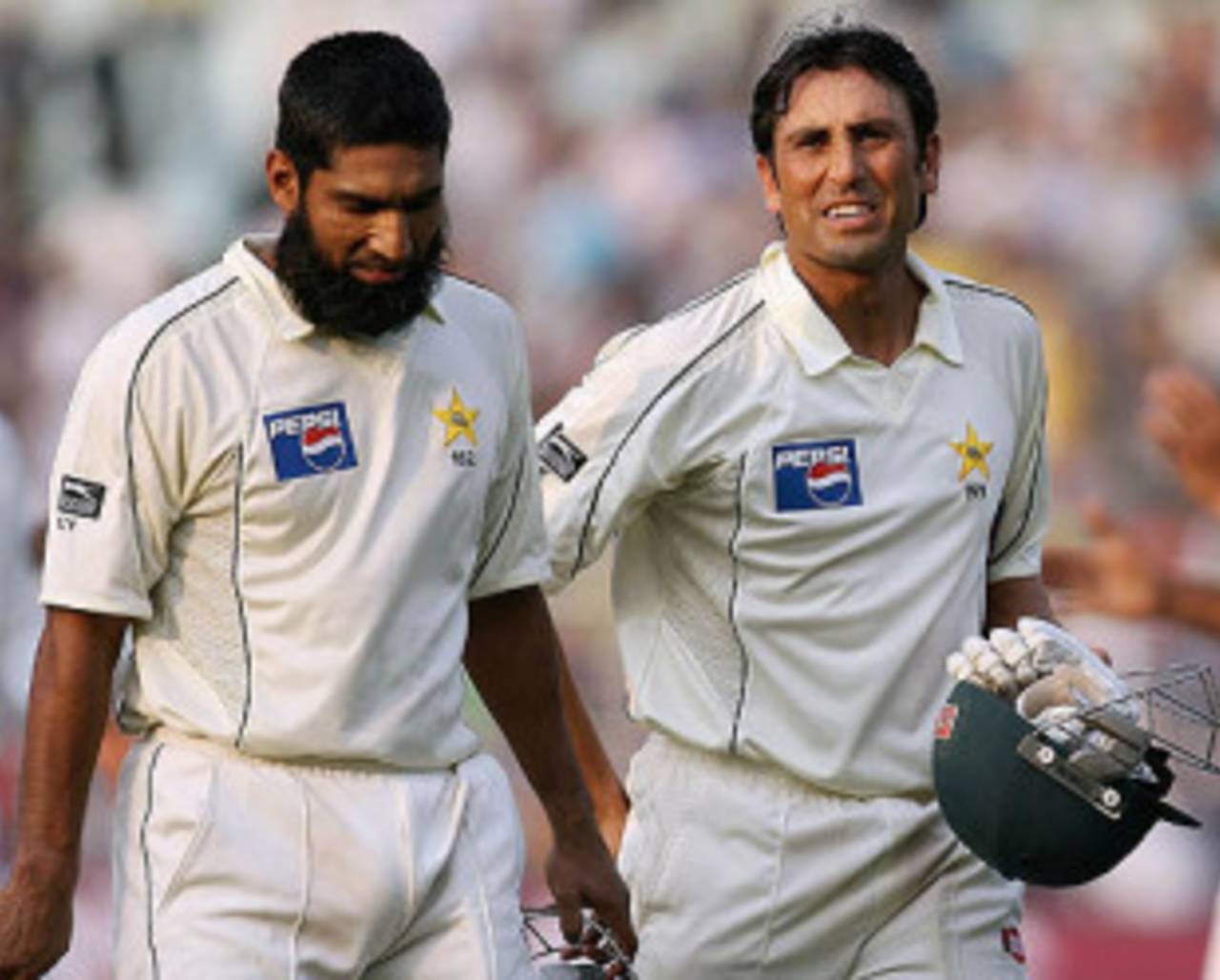Why are Yousuf and Younis missing?
Bewildered fans are now asking: what are these two doing sitting at home
Saad Shafqat
Feb 25, 2013, 11:10 PM

"It increasingly appears that, more than anything, Mohammad Yousuf and Younis Khan are paying the price for having run afoul of the PCB bosses" • AFP
Only in Pakistan could you have the country’s two best batsmen sitting at home while the national side takes a beating. It’s really baffling when you consider that only four Pakistanis have ever attained a Test batting average over 50, and Mohammad Yousuf and Younis Khan happen to be two of them (the other two being Inzamam ul Haq and Javed Miandad). When Pakistan last toured England, Yousuf emerged as one of Wisden’s Five Cricketers of the Year, and Younis made 173 (run out) at Leeds. Batting together on the Headingley pitch, they compiled 363 for the third wicket.
Bewildered fans are now asking: what are these two doing sitting at home? Most perplexing is the absence of any coherent explanation for their exclusion. They have been cast as troublemakers, tarred and feathered, fined and sentenced – but for what? No one is quite sure.
Yousuf’s troubles started when he grumbled about his omission from Pakistan’s World Twenty20-bound squad in 2007. Soon afterwards, he joined the ill-fated Indian Cricket League and found himself tied up in legal and financial knots. Back in the Test squad last summer, he went on to captain Pakistan in New Zealand and Australia, but that didn’t turn out so well. There was an inquisition, and he was made out to be a criminal.
Younis’s trajectory has been even more Shakespearean. He appeared set to scale great heights after making a triple-hundred in Karachi and then pulling off a miracle by leading Pakistan to the World Twenty20 championship in June 2009, mere weeks after the terrorism in Lahore. But the tour to Sri Lanka that followed was a disaster and he was removed from the team. Younis was ensnared by an inquisition too. There was a lot of tut-tutting, and he too was made out to be a criminal.
How could we have come to this impasse? There is good reason to believe that much of it has to do with an inept, moody, and vindictive PCB administration. The charges against Yousuf and Younis haven’t matured beyond innuendo, and it increasingly appears that, more than anything, they are paying the price for having run afoul of the PCB bosses. It could have been something as trifling as a heated exchange of words, a glare and stare, a sneer and a jeer – and here we are.
In all the political infighting, interpersonal friction, media frenzy, and gossip mongering, it is easy to lose sight of what Mohammad Yousuf and Younis Khan truly represent. The bare fact is that they are batting legends. Yousuf is nothing less than a torchbearer for Asia’s wristy batting esthetic that drives fans into rapture. Younis is a tenacious fighter who has repeatedly played his heart out for his country. Neither is over the hill: Yousuf is not yet 36 and Younis not yet 33.
As things now stand, there are two schools of thought on their recall. One view is that these players were responsible for politics and disarray within the team, and we should forget about them and look ahead; this will undoubtedly mean continued batting embarrassments out in the middle, but will be good for the team in the long run. The competing view is that one must do whatever is necessary to strengthen the spine of the middle order. If that means recalling Yousuf and Younis, then let us not delay.
The PCB’s visible stance on this issue remains tentative. Meanwhile, the public mood is split and you can find opinions on both sides of the divide. The fan base ultimately just wants runs, and won’t quibble over who makes them and how. All it takes to change the prevailing sentiment is one influential innings. If either Younis or Yousuf is given the opportunity and makes a hundred, all will be forgotten. Perhaps that is what the PCB is afraid of.
Saad Shafqat is a writer based in Karachi